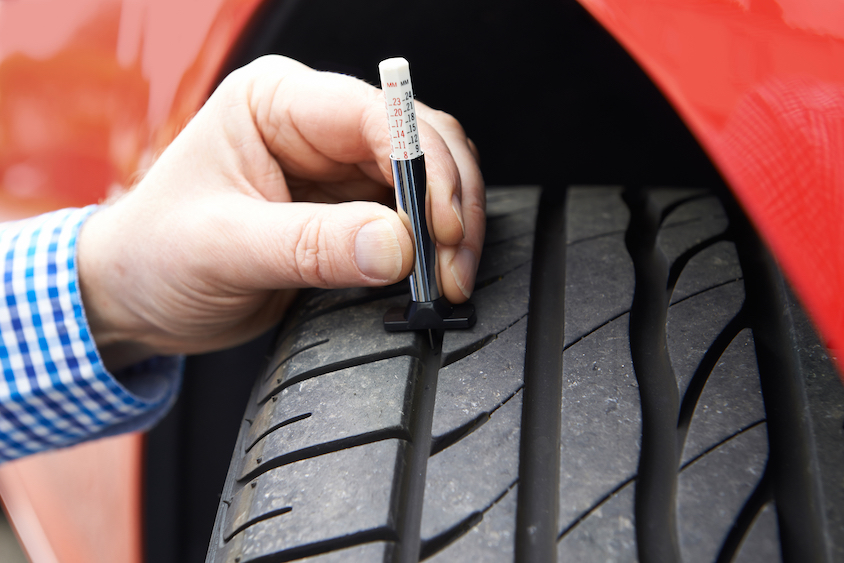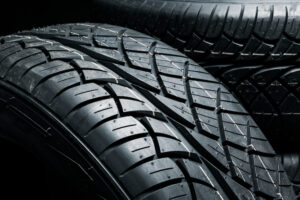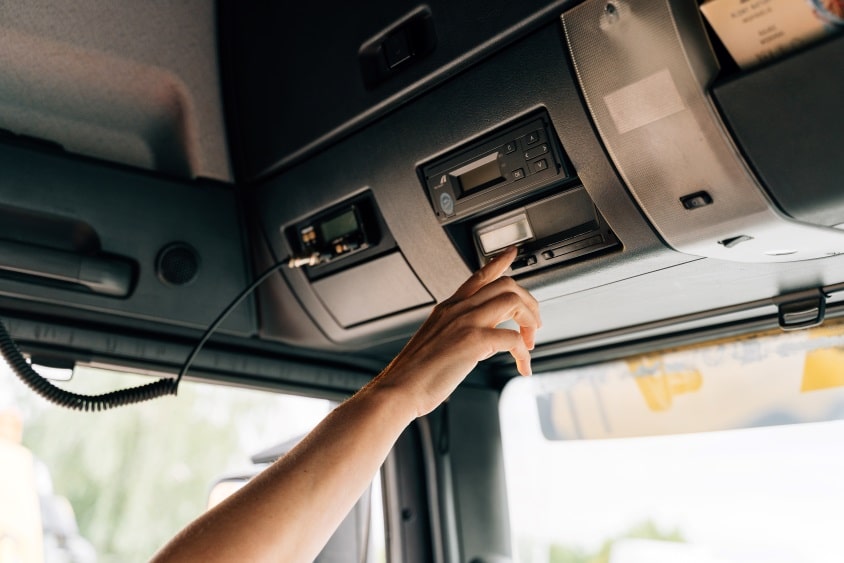Tyre Safety Guide
Written by: Simon Pavey, Last updated:22nd March 2024

Every commercial fleet operating in the UK should have a robust and comprehensive policy for ensuring that their vehicles are only ever driven with safe tyres. What exactly constitutes a ‘safe’ tyre, though, can be a complex formula with many components.
Whether you’re operating with HGVs, LGVs, or standard estate and saloon cars, this article is designed to help you identify the key components of tyre safety and make you aware of the legal limits that drivers should be adhering to.
Why is tyre safety important?
Before we get started, though, here’s why meeting safe tyre standards matters. Firstly, the livelihood and wellbeing of your drivers should be paramount to any organisation. Having a happy and healthy workforce means you can take on more work, rather than having to plug the gaps caused by avoidable tyre accidents.
What’s more, proudly advertising your business as one that treats driver safety as a top priority could also make your organisation stand out from the crowd in the jobs marketplace; giving you an edge when prospective employees are looking for a new place of work.
Tyres themselves are tangential to vehicle safety, and worn out or old tyres directly limit the amount of control your drivers have over their vehicles. In fact, poor tyres can increase stopping distances, reduce fuel economy when tread is low, and become more prone to tyre blowouts.
Fundamentally, having drivers operate with tyres that are below safe standards can have a range of negative impacts on safety and cost, and the only real downside of replacing tyres is the initial cost of new tyres. This is well worth doing, especially considering there is a legal element to this equation.
Tyre safety laws
There are a few different important laws governing tyre safety for commercial vehicles in the UK. One crucial piece of guidance to be aware of is the official ‘vehicle safety and maintenance guidance’, which is frequently updated with information around conducting safety checks and MOT inspections.
There are also helpful guides around how drivers can carry out safety checks, which is essential given it’s a legal requirement that drivers conduct a walkaround check before setting off on any journey, which must include checking the:
- Lights
- Tyres
- Wheel fixings
- Bodywork
- Trailer coupling
- Load and other equipment
Beyond this, laws exist to ensure that individual drivers communicate with their employers around safety matters. Any defects should be communicated in writing, and many employers may look to use software to streamline this process.
At Fuel Card Services, part of our work is to empower fleet operators with software to achieve exactly this goal, and our MyDriveSafe service enables drivers to report any defects via a mobile phone app which links through to a central database that managers can access.
What makes your tyres illegal?
Diving deeper into tyre safety, then, what are the key regulations to be aware of? Well, the main components of safe tyres are:
1. Tyre pressure
Tyre pressures make a difference to fuel economy as well as driver safety. If your driver’s tyres feature a pressure of around 30-40PSI, then they’re likely to run smoothly on the roads and require less power.
Conversely, low pressured tyres of anywhere downwards of 20PSI can be a genuine danger to the safety of your driver and other road users. These tyres are more susceptible to blowouts and can destabilise a vehicle.
The exact recommended limits for tyre pressure vary from vehicle to vehicle, and drivers should always have access to and check the manufacturer’s handbook to gauge recommended PSI levels. Conversely, over-pumping tyres can have a negative effect on performance by causing uneven tyre wear.
As a fleet operator, it’s key that you ensure drivers check tyre pressure frequently. Officially, this should be checked on a weekly basis. However, if this proves impractical, it’d be unwise to leave tyre pressure unchecked for any longer than one month.
2. Tread depth
The legal tread depth limit on any tyre in the UK is 1.6mm, control over the vehicle can be severely limited. Tread serves to grip the road as a wheel spins, thus making turning easier – and drivers can actually feel the difference between high and low levels of tread.
Fleet operators should ideally be advising drivers to change tyres when tread drops below 3mm, and failure to adhere to legal limits can result in substantial fines both for individual drivers (who can also incur points on their licences), and the organisation.
3. General tyre health
Through regular spot checks, drivers should be able to gauge whether tyres are in good condition. Any signs of tyre bulging should result in immediately replacing tyres, and this is also the case if the structural integrity of the tyre has been damaged through debris or vandalism.
It’s also a legal requirement of fleet operators that any non-roadworthy vehicles are taken out of service, and operators must implement a system to make this happen.
Taking tyre safety seriously
Ultimately, there’s no questioning that tyre safety should be a top priority for fleets, which is true both from a driver safety perspective and a cost-saving perspective. Newer tyres with better technology and safe pressure and tread levels require less fuel to power, and becoming a brand that showcases its good safety policies can stand individual operators out from the crowd in the eyes of potential new recruits.
How can Fuel Card Services help?
At Fuel Card Services, we take driver safety seriously. That’s why we offer a range of commercial fleet services that are designed to improve driver safety and provide cost savings. Services include:
- Tele-Gence; a smart telematics system that’s tailored to your business’ unique needs. This software can improve safety for your drivers and security for your vehicles.
- MyDriveSafe – which allows drivers to carry out vehicle checks on their mobile phones. This data then feeds back into a manager’s portal, enabling you to check that vehicles are safe to drive and that legal requirements are met.
- MyService.Expert – we offer an online, pay-as-you-go system that gives you access to pre-negotiated repair and maintenance rates at thousands of UK garages, meaning any faults can be resolved quickly without breaking the bank.





